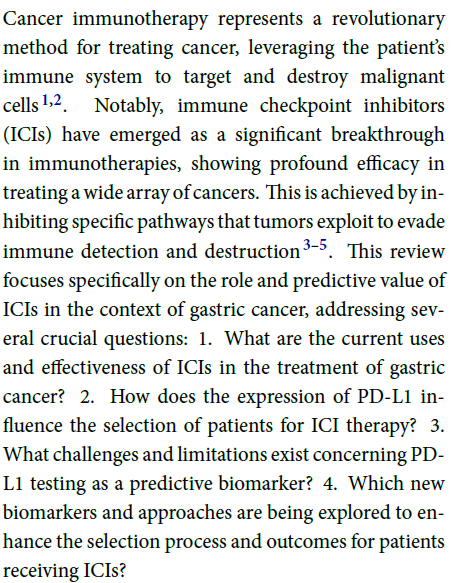Harnessing Immune Checkpoint Inhibitors Against Gastric Cancer: Charting the Course to Expanded Therapeutic Benefit
DOI:
https://doi.org/10.15419/bmrat.v11i4.877Keywords:
Gastric cancer, immunotherapy, immune checkpoint inhibitors, PD-L1, biomarkers, tumor microenvironmentAbstract
Cancer immunotherapy has become a groundbreaking approach in treatment, with immune checkpoint inhibitors (ICIs) showing exceptional success in blocking the pathways that tumors use to escape immune detection. This review delves into the clinical significance and predictive power of ICIs in the treatment of gastric cancer. It introduces ICIs, explaining their mechanisms of action, reviews key findings from critical trials, and discusses the role of programmed death ligand-1 (PDL1) testing as a potential biomarker for selecting suitable patients. The review also addresses the limitations of PD-L1 testing, while highlighting emerging predictive markers and ongoing research aimed at discovering novel biomarkers, optimizing therapeutic combinations, characterizing the tumor microenvironment, and understanding mechanisms of resistance to therapy. This effort to optimize ICIs aims to extend their significant clinical benefits to a larger group of patients with gastric cancer. In summary, this review provides specialists with an updated overview of the advancements in employing immunotherapy against gastric cancer and outlines the path towards enhancing patient outcomes through continuous research and the refinement of biomarkers.

Published
Issue
Section
License
Copyright The Author(s) 2017. This article is published with open access by BioMedPress. This article is distributed under the terms of the Creative Commons Attribution License (CC-BY 4.0) which permits any use, distribution, and reproduction in any medium, provided the original author(s) and the source are credited.
